|
by Erik Ritland
“We are called to stand up for our faith when God prompts us to, especially in the face of those who want us to compromise it.” Fully Alive’s Lenten Scriptural Commentary helps Christians get more out of Lent by taking God’s word seriously. Mostly avoiding personal stories and anecdotes, our commentary dives deeply into the scripture readings for each day and applies them to the broader context of Lent. We use the daily Mass readings from the Catholic lectionary. If possible, read each passage slowly, taking in each word. If you find that you’ve hurried through a reading, read it over a few more times. Let the words reverberate in your heart. After you’ve let it sink in, read our Lenten Scriptural Commentary. Wednesday of the Fifth Week of Ordinary Time God saves the three young men in the fiery furnace, and Jesus gives a fiery oratory to those who believe in Him. Readings: Dn 3:14-20, 91-92, 95/Jn 8:31-42 Click here to read the complete text from the USCCB website Nebuchadnezzar exclaimed, "Blessed be the God of Shadrach, Meshach, and Abednego, who sent his angel to deliver the servants who trusted in him; they disobeyed the royal command and yielded their bodies rather than serve or worship any god except their own God." (cf. Dn 3: 14-20, 91-92, 95) The point of the famous story of God saving Shadrach, Mesach, and Abednego from the fiery furnace is clear: God expects us to serve Him alone, even if it means putting our lives on the line. We might not be facing the fiery furnace – and hopefully that won’t be in our future as Christians – but each day we face the temptation to not defend God and our beliefs. This doesn’t mean we have to always make everything about our faith, or always “shove it in people’s faces.” After all, we want to work for the Gospel, not become an impediment for people to accept it. But we are indeed called to stand up for our faith when God prompts us to, especially in the face of those who want us to compromise it. Jesus said to those Jews who believed in him, "If you remain in my word, you will truly be my disciples, and you will know the truth, and the truth will set you free." They answered him, "We are descendants of Abraham and have never been enslaved to anyone. How can you say, 'You will become free'?" Jesus answered them, "Amen, amen, I say to you, everyone who commits sin is a slave of sin.” (cf. Jn 8: 31-42) The genius of Christianity is the freedom that can be found in Christ. As John the Beloved Disciple says in his First Letter, “if we say we have no sin, we deceive ourselves, and the truth is not in us.” If we think we don’t sin, we repress the wrong that we do, and this literally eats us alive. Humanity needs freedom from this logical human guilt. Of all the world religions, only Christianity offers this freedom in a concrete way. As I am fond of saying, God puts His money where His mouth is in Christ. He doesn’t look down from on high, detached, to forgive us our sins: He becomes one of us, suffers the weight of all humanity’s sin, and sets us free from our guilt. This active, intimate God desires to lead our lives, and He can if we let Him. Erik Ritland is a writer and musician. The founder of Fully Alive Christian Media, he also created The Minnesota Sport Ramble and is a writer and copy editor for Music in Minnesota. He was Lead Staff Writer for Minnesota culture blogs Curious North and Hometown Hustle. Reach him via email.
0 Comments
by Erik Ritland
“Of course, this doesn’t mean that our only job is to lazily accept what Jesus did for us and continue living our lives of turning away from God. We are saved by God’s work in Jesus, but as Jesus says, we are called to “go and sin no more.” If all we do is talk about what Jesus does, and it doesn’t affect our lives in a profound way, Jesus literally becomes an idol.” Fully Alive’s Lenten Scriptural Commentary helps Christians get more out of Lent by taking God’s word seriously. Mostly avoiding personal stories and anecdotes, our commentary dives deeply into the scripture readings for each day and applies them to the broader context of Lent. We use the daily Mass readings from the Catholic lectionary. If possible, read each passage slowly, taking in each word. If you find that you’ve hurried through a reading, read it over a few more times. Let the words reverberate in your heart. After you’ve let it sink in, read our Lenten Scriptural Commentary. Tuesday of the Fifth Week of Lent Things start getting extra real in our readings, as the Israelites look to the bronze serpent to be healed from deadly wounds, and Jesus explains how He does the same thing on a whole new level. Readings: Nm 21:4-9/Jn 8:21-30 Click here to read the complete text from the USCCB website Moses accordingly made a bronze serpent and mounted it on a pole, and whenever anyone who had been bitten by a serpent looked at the bronze serpent, he lived. (cf. Nm 21:4-9/Jn 8:21-30) It’s uncanny how many things that happen in the Old Testament clearly point to Jesus (or, at the very least, fit into the Jesus story very well). The story of the bronze serpent is a clear precursor to Jesus. Just as the Isrealites were saved when the bronze serpent was lifted up, so everyone is saved from their wrongdoing and their faults by Jesus lifted up on the cross. Of course, this doesn’t mean that our only job is to lazily accept what Jesus did for us and continue living our lives of turning away from God. We are saved by God’s work in Jesus, but as Jesus says, we are called to “go and sin no more.” If all we do is talk about what Jesus does, and it doesn’t affect our lives in a profound way, Jesus literally becomes an idol. Some claim that Christians looked back to find stories in the Old Testament to fit their theology. If this was the case, they somehow created an in-depth, complex, coherent system, all while preaching everywhere and having to avoid death at every turn. It’s unrealistic that they had the time, energy, or desire to create and perpetuate a lie, and one that was so brilliant and had so much to it. It also put them on the chopping block. There would have been plenty of better ways to deceive people, and it wouldn't have cost them their lives. Jesus said, “The one who sent me is with me. He has not left me alone, because I always do what is pleasing to him." (cf. Jn 8: 21-30) The relationship of Jesus and His Father is complex, mysterious, not all that easy to pin down. This makes sense. If every part of Christianity was easy to explain, that’d be a sure sign that it was made up by human reason alone. The main point is this, though: as God is with Jesus, and gave Him power, so God is also with us, just as intimately. We can tap into that, have a real relationship with the living God, and all we have to do ask for it and desire it. Erik Ritland is a writer and musician. The founder of Fully Alive Christian Media, he also created The Minnesota Sport Ramble and is a writer and copy editor for Music in Minnesota. He was Lead Staff Writer for Minnesota culture blogs Curious North and Hometown Hustle. Reach him via email. Blinded by Power; False Accusations, True Proclamations (Lenten Scriptural Commentary #34)4/8/2019 by John Morton
"Christ is not here telling us “not to judge," as is so often thrown around by those who know so little of Scripture, rather he is telling us that when we judge a person’s soul, we judge wrongly." Fully Alive’s Lenten Scriptural Commentary helps Christians get more out of Lent by taking God’s word seriously. Mostly avoiding personal stories and anecdotes, our commentary dives deeply into the scripture readings for each day and applies them to the broader context of Lent. We use the daily Mass readings from the Catholic lectionary. If possible, read each passage slowly, taking in each word. If you find that you’ve hurried through a reading, read it over a few more times. Let the words reverberate in your heart. After you’ve let it sink in, read our Lenten Scriptural Commentary. Monday of the Fifth Week of Lent In the Old Testament reading today, we hear the story of Susanna, wife of Joakim, who stays true to God in the face of great injustice. She is falsely accused by the elders who are the judges of the Jewish community in Babylon, but Daniel rebukes them. In the Gospel, we hear an important announcement regarding who Christ is. Similarly to the of the story of Susanna, he too is falsely accused, and rebukes the Pharisees who cannot see that the evidence for the truth stands before them. Readings: Dn 13:1-9, 15-17, 19-30, 33-62 / Jn 8:12-20 Click here to read the complete text from the USCCB website Jesus spoke to them again, saying, "I am the light of the world. Whoever follows me will not walk in darkness, but will have the light of life." You judge by appearances, but I do not judge anyone. And even if I should judge, my judgment is valid, because I am not alone, but it is I and the Father who sent me. Even in your law it is written that the testimony of two men can be verified. I testify on my behalf and so does the Father who sent me." So they said to him, "Where is your father?" Jesus answered, "You know neither me nor my Father. If you knew me, you would know my Father also." (cf. JN 8:12, 15-19) First, a clear proclamation as to who Christ is. This should have been obvious to Israelites, but it’s also pretty clear to just about anyone. He is “the light of the world," which is a reference to Isaiah’s “light of nations,” which is inspired by the lighting of the lamps during Passover. The claims he makes about His nature are clear: He is the culmination and perfection of these prophesies and lessons. The Pharisees are judging “by appearances," by the flesh. Christ is not here telling us “not to judge," as is so often thrown around by those who know so little of Scripture, rather he is telling us that when we judge a person’s soul, we judge wrongly. As he says, His judgment is valid, He judges by reality. That isn’t to say we aren’t called to recognize evil from truth, and judge errors in teaching and in actions, but we are never to judge the final state of person’s soul. And when we seek to judge even teaching and behavior, we must do so by the light of Christ. We should never conclude anyone is totally lost. That is something only known to God. Finally, we have Christ defying those who would question His divinity, the beginning of the doctrine of the two natures in Christ, of fully God and of fully man, what will later be called the hypostatic union (definitively established at the Council of Chalcedon, 451). The Pharisees are requiring two witnesses to verify Christ’s claims, as is required in the Law of Moses, but Christ uses these requirements and turns their law around on them to show us His relationship with the Father. But since they do not know the Father, likewise they do not know Him. Only by the light of Christ can we recognize both, can we judge the world rightly, can we transform the way we see the world. In the words of St. Cyril of Alexandria, “Only if it is one and the same Christ who is consubstantial with the Father and with men can He save us, for the meeting ground between God and man is Flesh and Christ.” John Morton is a writer, historian, and theologian from Minnesota. He founded Fully Alive with Erik Ritland in 2017. In addition to writing articles, he is also the podcast co-host and social media content strategist. by Erik Ritland
“The story of the woman caught in adultery is a microcosm of Lent: God forgives our sins, yet we are called to then leave them behind and live for His Kingdom.” Fully Alive’s Lenten Scriptural Commentary helps Christians get more out of Lent by taking God’s word seriously. Mostly avoiding personal stories and anecdotes, our commentary dives deeply into the scripture readings for each day and applies them to the broader context of Lent. We use the daily Mass readings from the Catholic lectionary. If possible, read each passage slowly, taking in each word. If you find that you’ve hurried through a reading, read it over a few more times. Let the words reverberate in your heart. After you’ve let it sink in, read our Lenten Scriptural Commentary. The Fifth Sunday of Lent Isaiah prophecies the coming new Kingdom, St. Paul speaks of the perpetual conversion of the Christian, and Jesus sets straight those who want to stone the woman caught in adultery. Readings: Is 43:16-21/Phil 3:8-14/Jn 8:1-11 Click here to read the complete text from the USCCB website Remember not the events of the past, the things of long ago consider not; see, I am doing something new! Now it springs forth, do you not perceive it? In the desert I make a way, in the wasteland, rivers. (cf. Is 43: 16-21) For the Christian – and the world if Christians are correct – the advent of Jesus Christ, His Incarnation, is the ultimate moment in world history. Unlike Eastern and mystical religions, which see time as cyclical, Christians see time as progressive, as having progressed toward God become a human being to bring our humanity back to the God-filled-ness that it was meant to have. The life and work of Jesus Christ is something new. It springs forth and inaugurates God’s Kingdom on earth. We are called to perpetuate that Kingdom, to be Jesus’ hands and feet, to help form the world into His vision of it as laid out in the Gospels. And in response, they went away one by one, beginning with the elders. So he was left alone with the woman before him. Then Jesus straightened up and said to her, “Woman, where are they? Has no one condemned you?” She replied, “No one, sir.” Then Jesus said, “Neither do I condemn you. Go, and from now on do not sin any more.” (cf. Jn 8: 1-11) "Woman, where are they? Has no one condemned you?” Jesus has a way with words, doesn’t He? He also has a biting way to cut down people who are doing wrong. Although this section of the Gospel of John isn’t in the earliest manuscripts, that they are words and deeds of Jesus is clear from how well it fits His personality as laid out in the rest of the Gospels. Jesus’ dual purpose here is often lost, of course: we emphasize “let he who is without sin cast the first stone” but conveniently forget “go and sin no more.” This story is a microcosm of Lent: God forgives our sins, yet we are called to then leave them behind and live for His Kingdom. Erik Ritland is a writer and musician. The founder of Fully Alive Christian Media, he also created The Minnesota Sport Ramble and is a writer and copy editor for Music in Minnesota. He was Lead Staff Writer for Minnesota culture blogs Curious North and Hometown Hustle. Reach him via email. by Erik Ritland
"Let’s make sure that we can take prophetic criticism seriously, not brushing it away – or crucifying it – as it might be in our nature to do." Fully Alive’s Lenten Scriptural Commentary helps Christians get more out of Lent by taking God’s word seriously. Mostly avoiding personal stories and anecdotes, our commentary dives deeply into the scripture readings for each day and applies them to the broader context of Lent. We use the daily Mass readings from the Catholic lectionary. If possible, read each passage slowly, taking in each word. If you find that you’ve hurried through a reading, read it over a few more times. Let the words reverberate in your heart. After you’ve let it sink in, read our Lenten Scriptural Commentary. Saturday of the Fourth Week of Lent The prophet Jeremiah prophecies Jesus’ passion, and the people of Jesus’ time argue over who he is. Readings: Jer 11:18-20/Jn 7:40-53 Click here to read the complete text from the USCCB website Yet I, like a trusting lamb led to slaughter, had not realized that they were hatching plots against me: "Let us destroy the tree in its vigor; let us cut him off from the land of the living, so that his name will be spoken no more." (cf Jer 11: 18-20) Tradition says that the Israelites didn’t have a great record when it came to how they treated the prophets. Most were ignored, exiled, or executed. It’s not for nothing that Jesus said, “Jerusalem, Jerusalem, you who kill the prophets and stone those sent to you” (Mt 23: 27). In a way, who could blame them? The prophets had difficult messages. They held up a mirror to the people, and often looking in the mirror isn't the most pleasant thing. Jesus was the ultimate version of this, which is why it makes sense that He’d cause such a stir with the religious authorities, and ultimately be killed. Let’s make sure that we can take prophetic criticism seriously, not brushing it away – or crucifying it – as it might be in our nature to do. Nicodemus, one of their members who had come to him earlier, said to them, "Does our law condemn a man before it first hears him and finds out what he is doing?" They answered and said to him, "You are not from Galilee also, are you? Look and see that no prophet arises from Galilee." (cf. Jn 7: 40-53) This is an all too familiar scenario, is it not? We're caught up in the whirlwind of crowd mentality. We just know that someone is guilty, that they should be punished. And then that one annoying person has to point out the hysteria in our haste. “Does our law condemn a man before it first hears him and finds out what he is doing?” What is our response? Personal condemnation of the speaker, which conveniently side-steps the good points that they have. In the ancient world, Galilee had a bad reputation. To say, “You are not from Galilee also, are you?” was to say, “you aren’t as worthless as him, are you?” The ad hominem attack is the perfect deflection from his reasonable response to the hysteria. I don’t need to list the most recent contemporary examples of the desire to find people guilty without evidence, and the attack on the character of those who dare stand up to the crowd against such injustice. Erik Ritland is a writer and musician. The founder of Fully Alive Christian Media, he also created The Minnesota Sport Ramble and is a writer and copy editor for Music in Minnesota. He was Lead Staff Writer for Minnesota culture blogs Curious North and Hometown Hustle. Reach him via email. by Erik Ritland
“We should show compassion and love for those who think differently than we do, while also holding fast to the truth.” Fully Alive’s Lenten Scriptural Commentary helps Christians get more out of Lent by taking God’s word seriously. Mostly avoiding personal stories and anecdotes, our commentary dives deeply into the scripture readings for each day and applies them to the broader context of Lent. We use the daily Mass readings from the Catholic lectionary. If possible, read each passage slowly, taking in each word. If you find that you’ve hurried through a reading, read it over a few more times. Let the words reverberate in your heart. After you’ve let it sink in, read our Lenten Scriptural Commentary. Friday of the Fourth Week of Lent In today’s readings, the Book of Wisdom clearly foretells the response of the authorities to Jesus, and Jesus speaks with authority about His identity. Readings: Wis 2:1a, 12-22/Jn 7:1-2, 10, 25-30 Click here to read the complete text from the USCCB website The wicked said among themselves, thinking not aright: "Let us beset the just one, because he is obnoxious to us; he sets himself against our doings, Reproaches us for transgressions of the law and charges us with violations of our training. He professes to have knowledge of God and styles himself a child of the LORD. To us he is the censure of our thoughts; merely to see him is a hardship for us, Because his life is not like that of others, and different are his ways. He judges us debased; he holds aloof from our paths as from things impure. He calls blest the destiny of the just and boasts that God is his Father. Let us see whether his words be true; let us find out what will happen to him. (cf. Wis 2:1a, 12-22) This reading so perfectly describes the response of the religious authorities to Jesus that it’s almost uncanny. Let us not, as so many do, pretend that all of the religious authorities in Jesus’ time were terrible people, or that we are so far from them. They thought logically, they were trying to protect their political and religious interests. To them, Jesus was a huge threat, and just a small amount of empathy should help us understand why. They simply cared about their traditions and their way of life. That’s not to say that there weren’t bad religious authorities in Jesus’ time. The Sadducees were notoriously out of step with true Judaism, were basically in the pocket of the worst of the Roman hierarchy. Many Pharisees, too, were too rigid in their following of ceremonial laws and closed off to the idea of God speaking to anyone but them. The lesson that we should take away from this? We should show compassion and love for those who think differently than we do, while also holding fast to the truth. So Jesus cried out in the temple area as he was teaching and said, "You know me and also know where I am from. Yet I did not come on my own, but the one who sent me, whom you do not know, is true. I know him, because I am from him, and he sent me." (cf. Jn 7: 1-2, 10, 25-30) The Gospel of John emphasizes that Jesus gets His power from God the Father. Jesus is one with God the Father, His divinity comes from His unity with Him. Even as a human being who walked this earth, He still had that power of divinity. We see that same divinity, and have just as intimate of an experience with Him as His apostles did, every time we receive the Eucharist, or meet Him in Eucharistic Adoration. We commune with the God who created us, who created the universe! What an awe-inspiring gift. Erik Ritland is a writer and musician. The founder of Fully Alive Christian Media, he also created The Minnesota Sport Ramble and is a writer and copy editor for Music in Minnesota. He was Lead Staff Writer for Minnesota culture blogs Curious North and Hometown Hustle. Reach him via email. by Erik Ritland
"As long as we don’t fill our God-shaped hole with God, we’re still missing something. As St. Augustine says, we don’t find our rest until we rest in God." Fully Alive’s Lenten Scriptural Commentary helps Christians get more out of Lent by taking God’s word seriously. Mostly avoiding personal stories and anecdotes, our commentary dives deeply into the scripture readings for each day and applies them to the broader context of Lent. We use the daily Mass readings from the Catholic lectionary. If possible, read each passage slowly, taking in each word. If you find that you’ve hurried through a reading, read it over a few more times. Let the words reverberate in your heart. After you’ve let it sink in, read our Lenten Scriptural Commentary. Thursday of the Fourth Week of Lent The Israelites turn away from God and worship the golden calf, and Jesus gives a mystical discourse. Readings: Ex 32:7-14/Jn 5:31-47 Click here to read the complete text from the USCCB website The LORD said to Moses, "Go down at once to your people whom you brought out of the land of Egypt, for they have become depraved. They have soon turned aside from the way I pointed out to them, making for themselves a molten calf and worshiping it, sacrificing to it and crying out, 'This is your God, O Israel, who brought you out of the land of Egypt!' (cf. Ex 32: 7-14) How quickly we run to replacements for God! This is a universal problem, from the most devout Christian to the most apathetic atheist. There's something in our inner being that moves us to fill the void in our heart that can only be filled with God (a God-shaped hole, if you will) with practically anything else. We grope and grasp for whatever we can to temporarily make us happy, ignoring that those things never fully satisfy us, which is why we have to keep going back to the same things over and over. Some of them are good, some bad, some neutral. But as long as we don’t fill our God-shaped hole with God, we’re still missing something. As St. Augustine says, we don’t find our rest until we rest in God. I have testimony greater than John's. The works that the Father gave me to accomplish, these works that I perform testify on my behalf that the Father has sent me. (cf. Jn 5:31-47) There is a venerable tradition that the Gospel of John was written to help convince those who thought that John the Baptist was the Messiah (these people still exist today, they’re called the Mandeans) that it was actually Jesus. That would explain why the Gospel of John focuses more on the spiritual side of John the Baptist than the other Gospels, and Jesus’ superiority to him (“I have a testimony greater than John’s”). In this reading, Jesus refers to “the works that the Father gave me to accomplish.” This is the inauguration of God’s Kingdom on earth, which began with the passion, cross, and resurrection, and continues today with Christians living the Kingdom life that Christ commands us to by living in the way that He taught us. Erik Ritland is a writer and musician. The founder of Fully Alive Christian Media, he also created The Minnesota Sport Ramble and is a writer and copy editor for Music in Minnesota. He was Lead Staff Writer for Minnesota culture blogs Curious North and Hometown Hustle. Reach him via email. by Erik Ritland
"If we listen to Him – more than an intellectual assent, this means actually acting on the teachings that He has laid before us, living in the Kingdom He has ushered in – we will ultimately pass from death to life." Fully Alive’s Lenten Scriptural Commentary helps Christians get more out of Lent by taking God’s word seriously. Mostly avoiding personal stories and anecdotes, our commentary dives deeply into the scripture readings for each day and applies them to the broader context of Lent. We use the daily Mass readings from the Catholic lectionary. If possible, read each passage slowly, taking in each word. If you find that you’ve hurried through a reading, read it over a few more times. Let the words reverberate in your heart. After you’ve let it sink in, read our Lenten Scriptural Commentary. Wednesday of the Fourth Week of Lent In today’s readings, Isaiah gives a vision of God’s renewal of the earth in Christ, and Jesus gives an extended, evocative discourse on salvation. Readings: Is 49:8-15/Jn 5:17-30 Click here to read the complete text from the USCCB website Thus says the LORD: In a time of favor I answer you, on the day of salvation I help you; and I have kept you and given you as a covenant to the people, To restore the land and allot the desolate heritages, Saying to the prisoners: Come out! To those in darkness: Show yourselves! Along the ways they shall find pasture, on every bare height shall their pastures be. They shall not hunger or thirst, nor shall the scorching wind or the sun strike them; For he who pities them leads them and guides them beside springs of water. I will cut a road through all my mountains, and make my highways level. (cf. Is 49: 8-15) The promise of new life and fulfillment of God’s plan is a common theme in the Old Testament prophets, especially Isaiah, Jeremiah, and Ezekiel. This reading is a particularly beautiful passage from late in the book of Isaiah, in which the prophet relates God’s message that He has not abandoned His people, that indeed He will “lead them and guide them beside springs of water.” The final portion is especially meaningful: But Zion said, "The LORD has forsaken me; my Lord has forgotten me." Can a mother forget her infant, be without tenderness for the child of her womb? Even should she forget, I will never forget you. (Is 49: 14-15) This was a message to the Israelites who were reeling from the destitution wrought by the Babylonian captivity, but it is equally applicable to us today, equally important for us to remember. God is near us, God is with us. Even when things are difficult – even especially when things are difficult – God is there with the tenderness of a mother for her infant, to help us and guide us. Be sure not to reject this offer from the living God. Amen, amen, I say to you, whoever hears my word and believes in the one who sent me has eternal life and will not come to condemnation, but has passed from death to life. Amen, amen, I say to you, the hour is coming and is now here when the dead will hear the voice of the Son of God, and those who hear will live. (cf. Jn 5: 17-30) The context of this passage, as the entire reading shows, is the judgment at the end of the world. A few verses later Jesus says, “Do not be amazed at this, because the hour is coming in which all who are in the tombs will hear his voice and will come out, those who have done good deeds to the resurrection of life.” There is obviously an eternal dimension to Jesus’ life and teaching. If we listen to Him – more than an intellectual assent, this means actually acting on the teachings that He has laid before us, living in the Kingdom He has ushered in – we will ultimately pass from death to life in the end. As importantly, when we live in His Kingdom on earth today, we pass from death to life in the here and now. Every day is a conversion, every day is a passing from death to life, from our old, sinful ways to new, better ways of living for God. When we live our lives each day in accordance with what the living God desires for us, we pass from death to life. Erik Ritland is a writer and musician. The founder of Fully Alive Christian Media, he also created The Minnesota Sport Ramble and is a writer and copy editor for Music in Minnesota. He was Lead Staff Writer for Minnesota culture blogs Curious North and Hometown Hustle. Reach him via email. by Erik Ritland
"The life of an everyday Christian won’t always be rainbows and sunshine, but the sweetness and light that Ezekiel describes will always undergird it, will permeate it. It is the foundation of people, churches, and societies that live in the Kingdom that Christ inaugurated." Fully Alive’s Lenten Scriptural Commentary helps Christians get more out of Lent by taking God’s word seriously. Mostly avoiding personal stories and anecdotes, our commentary dives deeply into the scripture readings for each day and applies them to the broader context of Lent. We use the daily Mass readings from the Catholic lectionary. If possible, read each passage slowly, taking in each word. If you find that you’ve hurried through a reading, read it over a few more times. Let the words reverberate in your heart. After you’ve let it sink in, read our Lenten Scriptural Commentary. Tuesday of the Fourth Week of Lent The prophet Ezekiel tells of a stunning vision, and Jesus scandalizes religious authorities by healing on the Sabbath. Readings: Ez 47:1-9, 12/Jn 5:1-16 Click here to read the complete text from the USCCB website "This water flows into the eastern district down upon the Arabah, and empties into the sea, the salt waters, which it makes fresh. Wherever the river flows, every sort of living creature that can multiply shall live, and there shall be abundant fish, for wherever this water comes the sea shall be made fresh. Along both banks of the river, fruit trees of every kind shall grow; their leaves shall not fade, nor their fruit fail. Every month they shall bear fresh fruit, for they shall be watered by the flow from the sanctuary. Their fruit shall serve for food, and their leaves for medicine." (cf Ez 47: 1-9) Ezekiel might be my favorite prophet. The visions in his book are so poetic, so evocative, so strange. His writings can easily go over the heads of most of us, but reading it along with a good study Bible clears up most confusion. I suggest the Didache Bible for basic understanding and the Navarre Bible for more intense study. This reading, though, is pretty clear: it is a prophecy of what the world will look like in God’s coming Kingdom, which is inaugurated by Christ. Like many poetic writings of the Old Testament, it states the ideal in an exaggerated way. The life of an everyday Christian won’t always be rainbows and sunshine, but the sweetness and light that it describes will always undergird it, will permeate it. It is the foundation of people, churches, and societies that live in the Kingdom that Christ inaugurated. When Jesus saw him lying there and knew that he had been ill for a long time, he said to him, "Do you want to be well?" The sick man answered him, "Sir, I have no one to put me into the pool when the water is stirred up; while I am on my way, someone else gets down there before me." Jesus said to him, "Rise, take up your mat, and walk." Immediately the man became well, took up his mat, and walked. (cf. Jn 5: 1-16) Compassion is at the heart of Jesus’ Kingdom program. It’s easy to understand why the Pharisees were angry that Jesus’ did this healing on the Sabbath. God gave the Jewish people the Sabbath, and all their laws, to help them live in the way that He intended. Some of them seem antiquated today – although it’s good to remember that assuming the totality of our value systems on the past is the height of being sophomoric – but since they were from God, it made sense for the Jewish leaders to take them very seriously. What they didn’t understand is that Jesus was not disregarding the Jewish law but fulfilling it, bringing it to its deepest meaning. God gave humanity the Sabbath as an act of compassion, and as such, being compassionate on the Sabbath is an acting out of that law in the deepest sense, not a disrespectful breaking of it. Erik Ritland is a writer and musician. The founder of Fully Alive Christian Media, he also created The Minnesota Sport Ramble and is a writer and copy editor for Music in Minnesota. He was Lead Staff Writer for Minnesota culture blogs Curious North and Hometown Hustle. Reach him via email. by John Morton
"In Hebrews, we hear that "Faith is confident assurance concerning what we hope for, and conviction about things we do not see." (Heb 11:1). Faith must be, in the words of Bishop Robert Barron, “confident and full of conviction.” The faith on which Christianity is founded is not a blind faith, not a childish faith, but one that grows with seeking, with understanding, and sometimes even with questioning." Fully Alive’s Lenten Scriptural Commentary helps Christians get more out of Lent by taking God’s word seriously. Mostly avoiding personal stories and anecdotes, our commentary dives deeply into the scripture readings for each day and applies them to the broader context of Lent. We use the daily Mass readings from the Catholic lectionary. If possible, read each passage slowly, taking in each word. If you find that you’ve hurried through a reading, read it over a few more times. Let the words reverberate in your heart. After you’ve let it sink in, read our Lenten Scriptural Commentary. Monday of the Fourth Week of Lent In the Old Testament reading today, we hear of the great joy and blessings that are given to those that remain faithful to God, and the judgment due those who reject Him. Obedience is always preferred above sacrifice, but here the Jewish people choose neither. In the Gospel we hear of the second miracle Jesus performed on his travels north, from Judea back to Galilee. Readings: Is 65:17-21 / Jn 4:43-54 Click here to read the complete text from the USCCB website For Jesus himself testified that a prophet has no honor in his native place. Jesus said to him, "Unless you people see signs and wonders, you will not believe." The royal official said to him, "Sir, come down before my child dies." Jesus said to him, "You may go; your son will live." The man believed what Jesus said to him and left. (cf. JN 4:44, 48-51) First, we should note that Christ, much like a handful of the Lord’s prophets who came before him, is not well received by those who grew up with him, at least not at first. We have a few examples of this rejection in the Gospels, from Christ’s extended family for example. This makes sense when we consider that the pride and envy of people will often blind them to the truth, especially in regards to those closest to them. In this case, that this man who they grew up with, played with, and knew so well claimed to be their Messiah and Savior didn't add up. We find the same occurring with those closest to us, who are often the hardest people to evangelize and the most vocal opponents to conversion. Your history with them clouds their judgment when it comes to your efforts to speak a new truth, to become a new person. In today's gospel we are moved by an example of great faith. We see a nobleman coming to Christ from a great distance in order to save his ill son. Let’s take a minute to note that he came to Christ. He didn’t send his servants and he didn’t beckon Christ to come to him, both of which a nobleman would typically do. Instead, he has great respect for Christ, so much so that he leaves the bedside of his dying son to make this journey himself. Certainly we see the beginnings of faith here. What he doesn’t have fully yet is a strong faith. He asks Christ to come back with him, probably thinking that his miracles can’t work over great distances, or that physical touch is necessary. This makes sense, as miracles performed in the Old Testament often required some sort of physical touch. But Christ doesn’t have any such requirements, he is not bound in such ways. Upon hearing that his son will live, he takes Christ at his word and heads back. He believes what he is told, and he is confident in the efficacy of Christ’s word. His faith continues to strengthen. Upon hearing from his servants that his son lives, he confirms that the miracle coincided with his petition to Christ. He sees that his faith is well placed, and with this new evidence he and his household become believers, become disciples of Christ. In Hebrews, we hear that "Faith is confident assurance concerning what we hope for, and conviction about things we do not see." (Heb 11:1). Faith must be, in the words of Bishop Robert Barron, “confident and full of conviction.” The faith on which Christianity is founded is not a blind faith, not a childish faith, but one that grows with seeking, with understanding, and sometimes even with questioning. The teachings of the Church, all of them, are not irrational or without reason. In fact, they are just the opposite. The teachings of the Church are wholly reasonable, they have explanations planted in logic and rational thought. We have been given evidence in historical accounts and in the accounts of miracles, we have been given the signs we are asking for. Yet we must still have faith in what is to come, assured of the promises made by Christ. It is reason and understanding that makes that faith persistent in the face of doubt. John Morton is a writer, historian, and theologian from Minnesota. He founded Fully Alive with Erik Ritland in 2017. In addition to writing articles, he is also the podcast co-host and social media content strategist. |
Authors
Erik Ritland received his MA in Theology in 2017. He's the founder and content manager of Fully Alive Christian Media and Rambling On, copy editor and writer for Music in Minnesota, and an acclaimed songwriter. Archives
April 2019
Categories |
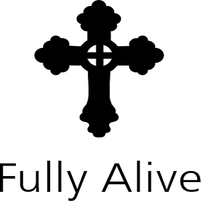
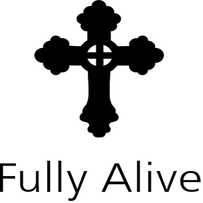
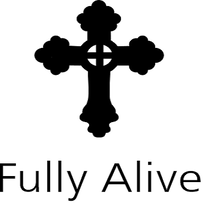
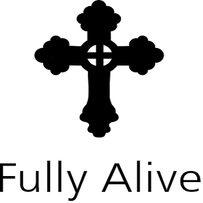
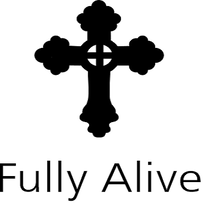
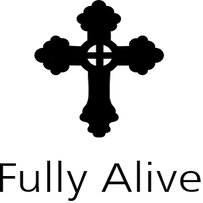
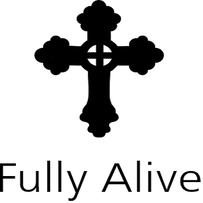
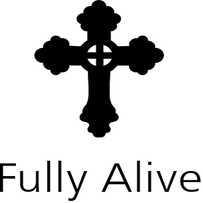
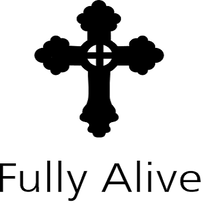
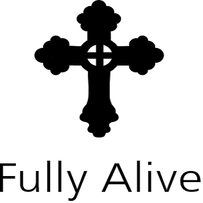
 RSS Feed
RSS Feed
